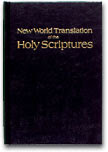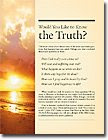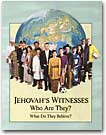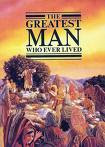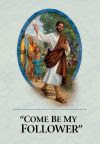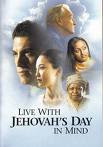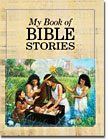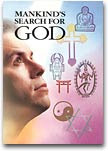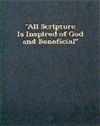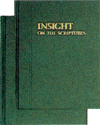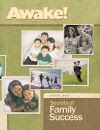Many people today are looking for the promised Messiah. Due to this, I am presenting a four part series focusing on four aspects of the Messiah's life: Prophecies concerning his birth and childhood, his adulthood and ministry, his death, and finally, looking to see if anyone fulfills those prophecies.
To the Muslims, Jesus Christ was one of the four great prophets along with Moses, King David, and Muhammed. To Christians, Jesus was the promised Messiah, the Son of God, the Holy One of Israel. To Jews, he was a criminal imposter, deserving of the death that he died.
While different Christian groups have different ideas as to who Jesus is, they all have one belief in common. Jesus is the Messiah promised in the Tanakh. He came to earth to die for all of our sins. He fulfilled every single prophecy uttered in the Law, Psalms, and Prophets. We must all put our faith in Jesus to get to the Father. Are they all deluded? This question will be answered in the light of Scriptures in this four part series.
Whose Son is the Messiah?
The Tanakh is a collection of books (thirty-nine to be exact) that contain the very words of God Almighty. (2 Samuel 23:2; Zechariah 7:12) The Tanakh contains many prophecies, or events fortold by God put into writing by men. (Isaiah 44:26-28; Daniel 8:3-6) Many of the prophecies recorded where prophecies of the coming of the Messiah.
The first prophecy recorded in the Scriptures is at Genesis 3:15. This prophecy points to the Messiah. It reads, "And I shall put enmity between you and the woman and between your seed and her seed. He will bruise you in the head and you will bruise him in the heel." This was spoken to the serpent who misled Adam and Eve. Most Christians believe this to be Satan the Devil. After Adam and Eve fell, God immediately put into motion a plan to send a Messiah to bruise the head of this serpent.
Another prophecy about the Messiah is given to Abraham, the father of Israel. God promises that "by means of [Abraham's] seed, all nations of the earth will certainly bless themselves." (Genesis 22:18) Even before that prophecy was told to Abraham, God had already promised that the Messiah would come through Isaac, one of Abraham's sons. (Genesis 21:12) Isaac had two sons also, Jacob and Esau. Jacob then had twelve sons, one of which was named Judah. Jacob, on his deathbed, prophecied over his sons and uttered even yet another prophecy. The Messiah would come through his son Judah!-Genesis 49:1, 10
In just one book of the Scriptures, we find that the Messiah is to come through Abraham, Isaac, Jacob, and then Judah. In another book of the Tanakh, one obscure to many, we find a small geneaology. This geneaology starts with one of Judah's sons, Perez, and goes all the way to the second King of the united kingdom of Judah and Israel. The list ends with King David."Now these are the generations of Perez: Perez fathered Hezron, Hezron fathered Ram, Ram fathered Amminadab, Amminadab fathered Nahshon, Nahshon fathered Salmon, Salmon fathered Boaz, Boaz fathered Obed, Obed fathered Jesse, and Jesse fathered David." (Ruth 4:18-22, English Standard Version) Why would this be important?
Prophecy indicates that the Messiah would come through the line of Jesse and ultimately, King David. (Isaiah 11:1, 10; Psalm 132:11) The Messiah is to be of the royal family of the King of Israel! That is why it was spoken through the prophet Isaiah: "For a child is born to us, a son is given us; dominion will rest on his shoulders, and he will be given the name...Wonder of a Counselor, Mighty God, Father of Eternity, Prince of Peace in order to extend the dominion and perpetuate the peace of the throne and kingdom of David."-Isaiah 9:6-7, Complete Jewish Bible
Major Prophecies Concerning the Messiah's Birth
In the Twelve, particularly the prophet Micah, we are given more information concerning the coming Messiah. Micah tells us the city in which he is to be born. The city is called Bethlehem Ephrathah. (Micah 5:2) The fact that the city is given two names is interesting. Why? In Israel, there were two cities called Bethlehem. One of the Bethlehem's was in the territory of Judah while the other was in the territory of Zebulun, to the far north. How would we differentiate between the two? Micah did that far us!
By calling the city, not just Bethlehem, but saying "Bethlehem Ephrathah", Micah gives us the guiding clue to locating the city. The Bethlehem in southern Israel had originally been called Ephrathah before its name was changed. Even more startling, this city was the very city that King David was born in! (1 Samuel 16:1; 17:12) The Messiah was to be born in the very city of his father.
Three more prophecies concerning the birth of the Messiah are also mentioned. One of them tells us that there is to be national disaster for Israel, using the heartbreaking words, "A voice is heard in Ramah, lamenting and bitter weeping. It is Rachel weeping for her children, refusing to be comforted for her children, because they are no longer alive." (Jeremiah 31:15, Complete Jewish Bible) Another prophecy states that the Messiah would be called out of Egypt. (Hosea 11:1) How could the Messiah be called out of Egypt if he was born in Bethlehem?
Yet another prophecy indicates something far-fetched. The prophet Isaiah tells us: "Therefore Adonai himself will give you people a sign: the young woman will become pregnant, bear a son and name him 'Immanu El [God is with us]." (Isaiah 7:14, CJB) What is remarkable about a "young woman" becoming pregnant or even distinguishable from all the other women who ever lived in Israel?
The Hebrew word used in Isaiah 7:14 for "young woman" is "'almah", which literally means "maiden". However, in the context of the Tanakh, this literally means "a young woman of unsullied reputation". The Greek Septuagint (or, LXX) version of the Tanakh uses the Greek word "parthenos" because of the this. (The LXX was the version of choice for many years in the synagouges) The Hebrew word meaning "virgin" (which many Bibles use for "'almah" in modern Bible translations) is actually the Hebrew word "bethulah'". While the word for virgin is not used, the idea of a young woman with virginity intact is the idea being presented by Isaiah.
The details of the Messiah's birth are few in the Tanakh. These are the few things that the Scriptures do mention. From this we find that the Messiah will be a descendant of King David, therefore, of royal blood. He will be born in Bethlehem, the very city that David was born in, and his mother will be a virgin. Those are interesting requirements for someone only proving that the Messiah will be a truly unique person.
(In the next part of this series, we will look at the prophecies that speak specifically of the life of the Messiah.)
Saturday, April 11, 2009
Messiah, Pt. 1: There Has Been a Child Born to Us
Labels:
Genesis 22:18,
Isaiah 7:14,
Isaiah 9:6-7,
Jeremiah 31:15,
Ruth 4:18-22

